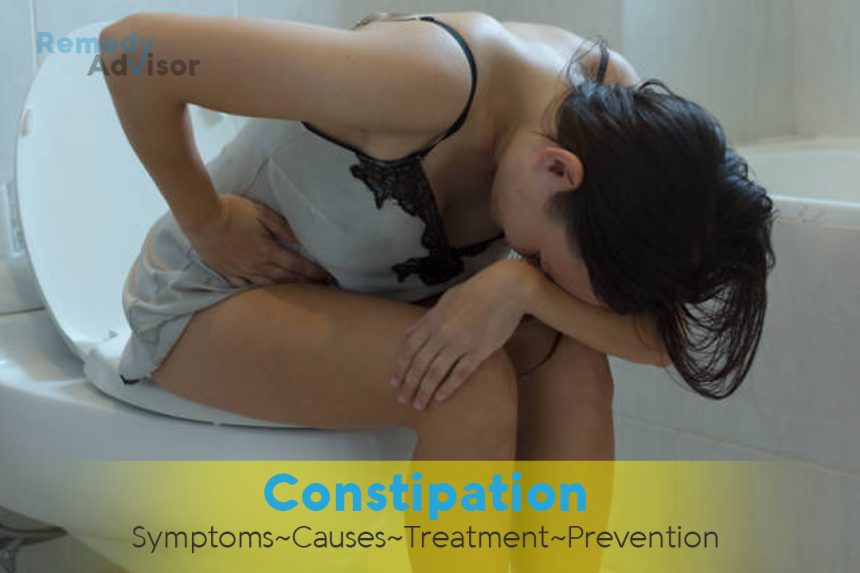What is it
Constipation is really more a complaint than a disorder in fact, it is the most common gastrointestinal complaint in the United States. It is usually defined as the failure to have a bowel movement after three days or more and is often accompanied by a hardening of the stool and by straining during defecation. Though constipation can be a sign of an underlying health problem, in most cases it’s nothing you need to worry about and can be remedied with self-care measures.
One of the biggest myths about constipation is that you’re constipated if you don’t have a daily bowel movement. Although a daily bowel movement is often thought of as “regular,” there is no norm for regularity. It is perfectly normal for a person to have a bowel movement once a day, twice a day, every other day, or perhaps only three times a week.
Symptoms
- Infrequent bowel movements.
- Passage of small, hard stools.
- Abdominal swelling.
- Pain, strain, difficulty passing stools.
- Continued sensation of fullness after a bowel movement.
- No bowel movement in at least three days (four days for children).
What causes it
A lack of fiber in the diet is probably the most common cause; fiber adds bulk to stool, it absorbs water to help soften stool, and it stimulates peristalsis, the colonic contractions that produce the urge to defecate. A lack of fiber can result in hardened stools that are slow to pass.
Other common causes include not drinking enough fluids on a daily basis; a sedentary lifestyle; emotional stress, obsessive-compulsive disorder, or depression, which can bring about a change in bowel habits; ignoring the urge to defecate; travel or any other shift in your daily routine that changes your regular toilet habits; laxative abuse; and a lack of toilet facilities.
Constipation can be caused by various medications, including pain medications, calcium supplements, antacids containing aluminum, iron supplements, antidepressants, and diuretics. There are also medical conditions associated with constipation, including diabetes, kidney failure, backache, bowel disease, and irritable bowel syndrome. Pregnancy can also cause constipation because of hormonal changes.
What if you do nothing
If you have no other symptoms, constipation may clear up on its own in a matter of days; however, at the very least you may need to make some changes in your diet or other lifestyle habits to alleviate it.
Home remedies
Treatment depends on the specific cause, severity, and duration of the problem, but in most cases these straightforward measures will quickly bring relief.
Drink plenty of nonalcoholic fluids
These will soften the stool, and soft stools are easier to pass than hard ones. Be sure to drink at least eight glasses of water or fruit juice a day.
Eat a diet high in fiber
Examples of high-fiber foods are grains (including unprocessed wheat bran), fruits, vegetables, and legumes. As your grandmother may have told you, prunes are particularly effective in preventing constipation, as are raisins and figs. Try to eat five to six servings of fiber-rich foods daily (which should provide 20 to 30 grams of dietary fiber). But be careful to increase your fiber intake gradually. Excessive amounts of fiber can lead to bloating and gas.
Get regular exercise
Physical activity helps stimulate bowel movements by strengthening your abdominal and pelvic floor muscles.
Set aside regular bathroom time
Try not to ignore the urge to defecate, even when it may not be convenient to interrupt your routine.
Use a laxative sparingly, if at all
Chronic use of laxatives interferes with the colon’s ability to contract.
Prevention
The steps for alleviating constipation should also prevent its recurrence. In short, keep your fiber intake high; drink a minimum of eight glasses of water or other non-alcoholic fluid daily; exercise on a regular basis; try to keep regular toilet hours; and don’t ignore the urge to defecate.







